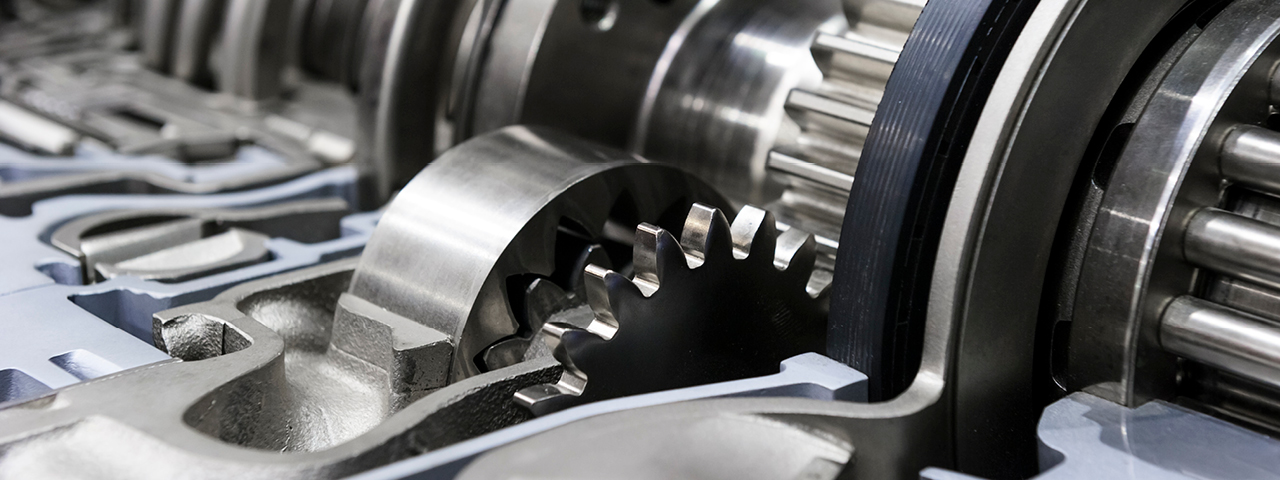
Section 232 Steel and Aluminum Tariffs
Current Status
As of March 12, 2025, the expanded Section 232 tariffs on steel and aluminum are now in effect. All imports of steel and aluminum are subject to a 25% tariff, and previous country exemptions and tariff-rate quotas have been eliminated.
The tariffs also apply to certain derivative products based on the steel and aluminum content. The product exclusion process has been terminated, meaning previously approved exclusions are no longer valid.
Tariff Rate, Effective Date
Tariff Rate, Effective Date
Under the new order, all imports of steel and aluminum will be subject to a 25% tariff rate, effective March 12, 2025. This represents an increase from the previous 10% tariff on aluminum.
Certain steel and aluminum derivative products are included in the order and subject to the tariff. See "Derivative and Downstream Products" below.
Countries Subject to the Tariff
Countries Subject to the Tariff
There are no country exemptions under the new policy. All previous Section 232 steel and aluminum country exemptions and tariff-rate quota deals with Canada, Mexico, the European Union, Japan, South Korea, Australia and others have been eliminated. President Trump is considering exempting Australia from these tariffs due to Australia’s trade surplus with the United States.
According to the proclamation, the removal of country exemptions is due to significant increases in imports from previously exempted countries, which have contributed to oversupply and pricing pressures, negatively impacting U.S. domestic producers.
The largest suppliers of steel to the U.S. by quantity were:
- Canada
- Brazil
- Mexico
The largest suppliers of aluminum to the U.S. by quantity were:
- Canada
- United Arab Emirates (UAE)
- China
See additional data details below.
Exclusions
Exclusions
The proclamation terminates the product exclusion process which previously allowed U.S. companies to request exclusions for products not readily available from domestic sources. Additionally, previously approved product-specific tariff exclusions are also eliminated.
Downstream and Derivative Products
Derivative and Downstream Products
Tariffs of 25% to be imposed on additional steel derivatives and aluminum derivatives. The additional duty shall only apply to the declared value of the aluminum or stel content of the derivative article. (See below)
Derivative steel products processed in another country from steel articles that were "melted and poured" in the U.S. and derivative aluminum products processed in another country from aluminum articles that were "smelted and cast" in the U.S. are not subject to the 25% tariff.
Refer to the Federal Register notices for the full list of derivative products.
Steel DerivativesAluminum Derivatives
Value of the Steel and Aluminum Content Outside of Chapters 73 and 76
The value of the steel/aluminum content should be determined in accordance with the principles of the Customs Valuation Agreement, as implemented in 19 U.S.C. 1401a.
Thus, the value of the steel/aluminum content is the total price paid or payable for that content, which is the total payment (direct or indirect, and exclusive of any costs, charges, or expenses incurred for transportation, insurance, and related services incident to the international shipment of the merchandise from the country of exportation to the country of importation) made/to be made for the steel/aluminum content by the buyer to, or for the benefit of, the seller of the steel/aluminum content.
Normally, this would be based on the invoice paid by the buyer of the steel/aluminum content to, or for the benefit of the seller of the steel/aluminum content.
CBP Steel and Aluminum FAQsSteel Import Data
Steel Import Data
U.S. Imports of Steel Mill Products (Quantity in Metric Tons)
| Country | Total in Last 12 Months (Metric Tons) Mar. 2024 - Feb. 2025 |
|---|---|
| Canada | 5,475,253.32 |
| Brazil | 3,746,872.11 |
| Mexico | 2,911,323.23 |
| South Korea | 2,450,779.47 |
| Vietnam | 1,144,356.81 |
U.S. Imports of Steel Mill Products (Value in U.S. Dollars)
| Country | Total in Last 12 Months (Value in U.S. Dollars) Mar. 2024 - Feb. 2025 |
|---|---|
| Canada | 6,412,766,187.21 |
| Mexico | 3,136,313,329.38 |
| South Korea | 2,768,346,612.98 |
| Brazil | 2,692,100,641.45 |
| Germany | 1,872,578,560.48 |
Source: U.S. Department of Commerce, U.S. Steel Import Monitor
Aluminum Import Data
Aluminum Import Data
U.S. Imports of Aluminum Products (Quantity in Metric Tons)
| Country | Total in Last 12 Months (Metric Tons) Mar. 2024 - Feb. 2025 |
|---|---|
| Canada | 4,528,369.4 |
| United Arab Emirates | 545,107.6 |
| China | 299,737.0 |
| South Korea | 295,145.0 |
| Bahrain | 291,576.2 |
U.S. Imports of Aluminum Products (Value in U.S. Dollars)
| Country | Total in Last 12 Months (Value in U.S. Dollars) Mar. 2024 - Feb. 2025 |
|---|---|
| Canada | 13,376,935,960.1 |
| United Arab Emirates | 1,448,962,796.0 |
| China | 1,089,488,214.5 |
| South Korea | 1,068,986,040.6 |
| Bahrain | 781,217,252.4 |
Source: U.S. Department of Commerce, U.S. Aluminum Import Monitor
Official Documents
Has your business been impacted by Tariffs?
We welcome your feedback to help us better understand and assess the impact of these tariffs on our industry and businesses. Please share with us by contacting Angela Chiang, director, international affairs, at angela.chiang@autocare.org.
Share Your Impact StoryResources
 On Your Behalf
On Your Behalf Press Release
Auto Care Association Submits Comments, Economic Study to USTR, Warns Proposed Shipbuilding Remedies Will Harm American Consumers, Businesses
 On Your Behalf
On Your Behalf Auto Care Association Joins Coalition Letter in Opposition of USTR's Shipping Remedies Proposal
 Press Release
Press Release Auto Care Association Responds to Trump Administration’s 25% Tariff on Steel, Aluminum Imports
 Press Release
Press Release Auto Care Association Responds to Trump Administration’s Sweeping Tariffs on Canada, Mexico, China
 Press Release
Press Release Trump Tariffs on Mexico, Canada, China, BRICS Imports Could Strain Over $100 Billion Automotive Parts Industry
 On Your Behalf
On Your Behalf Auto Care Association Joins Coalition Letter Calling for Extension of Section 301 Tariff Modifications
 On Your Behalf
On Your Behalf Auto Care Association Joins Coalition Letter Calling for Extension of Section 301 Tariff Exclusions
 On Your Behalf
On Your Behalf Auto Care Association Joins Coalition Letter to Congress Urging USTR to Conclude Section 301 Four-Year Review






